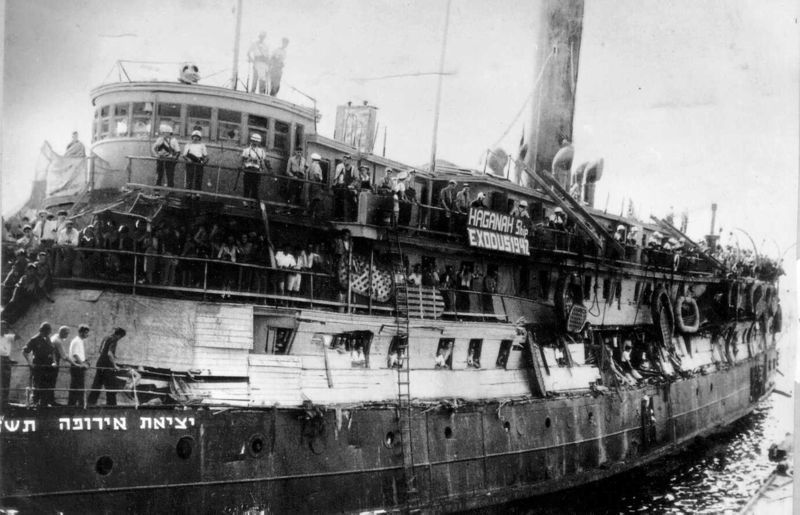On 2 May 1946, Britain's Prime Minister Clement Attlee, speaking in Parliament, announced that immigration to Palestine under British administration would cease. The decision was taken in response to the actions of the Zionist military organisation Haganah (Hebrew: “Defence”) that had existed in Palestine since 1920.
After the conquest of Palestine by the British army in the First World War, the new authorities had to intervene in armed conflicts between the Arab and Jewish populations of these lands. The British tried to ban the Haganah – it was very effective and offered armed resistance also to the British military – but never succeeded. Because of the Holocaust, the Jewish question in Palestine was exacerbated to the extreme. The Haganah received material support from the new settlers who flooded into Palestine from Europe.
After a Cabinet decision, the UK launched a total blockade of Palestine in the summer of 1946 by deploying large numbers of armed units. Despite these measures, the tide of illegal Jewish immigrants did not stop - in 1946, about 23,000 people had migrated to the land which was soon to become Israel.
On 14 February 1947, London would refer the “Palestine question” to the United Nations. On 18 February, Britain's Foreign Secretary Ernest Bevin said in the House of Commons: “I really want the House to face up to this problem which His Majesty's Government has to face up to now(…) So far as the present residents in Palestine are concerned, these include about 600,000 Jews, now nearer 700,000, I am told, already living in Palestine with 1,200,000 Arabs(...) There is no other road but the establishment of a trusteeship leading to independence from a mandatory position, unless we get agreement between the parties, and there was no chance of agreement.”
On 14 May 1948, the new state of Israel appeared on the world map, and Haganah was set to become the basis of the Tzahal, the Israel Defense Forces.
Source:
“Israel's Special Services” by Dmitry Prokhorov
























